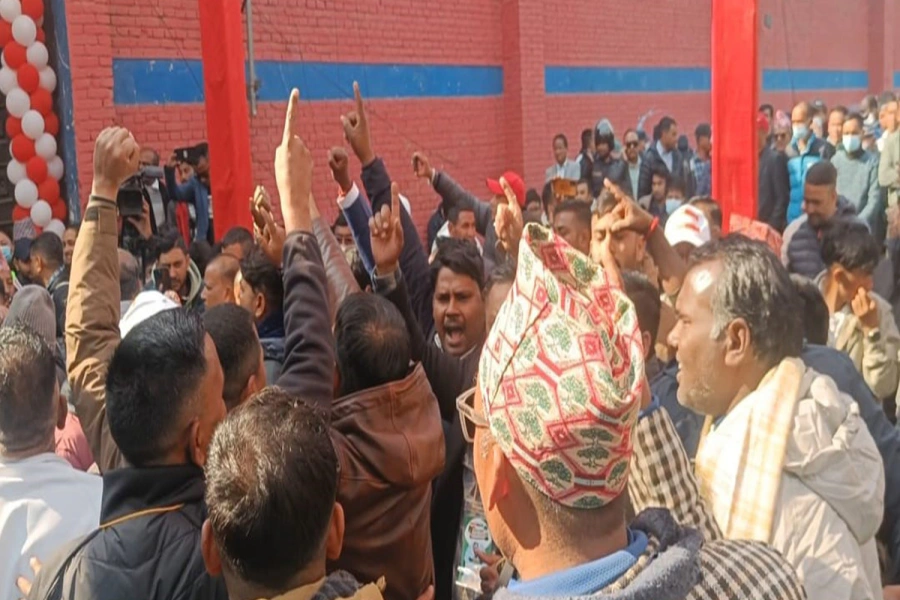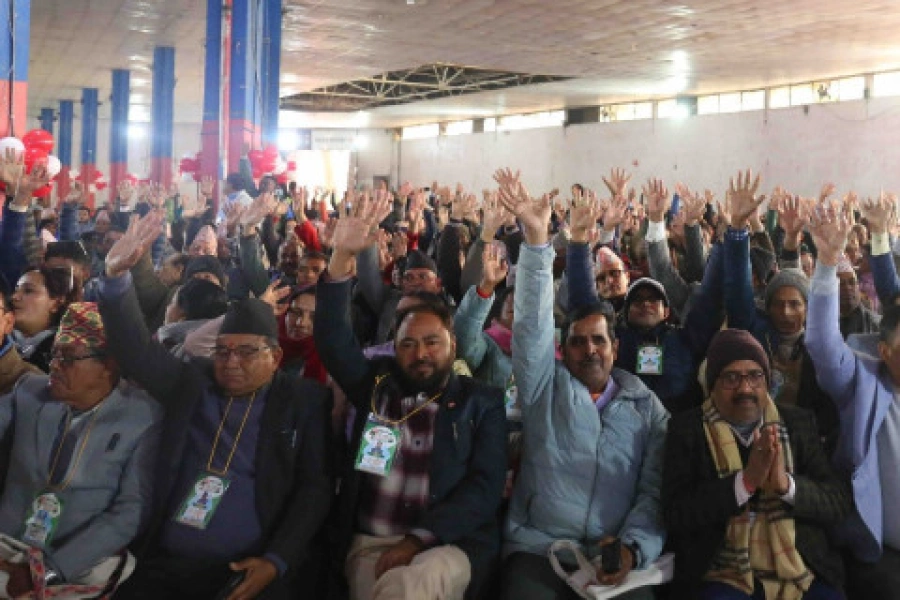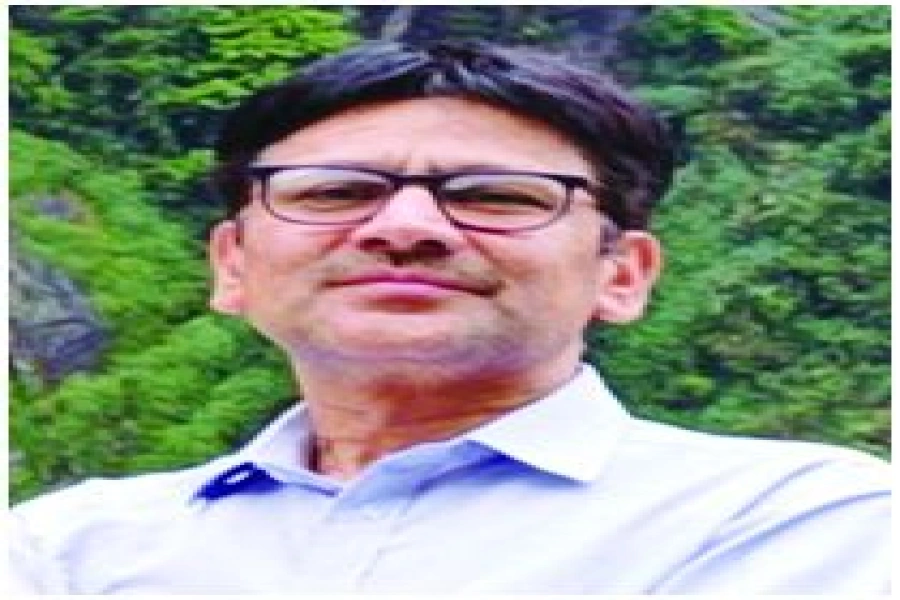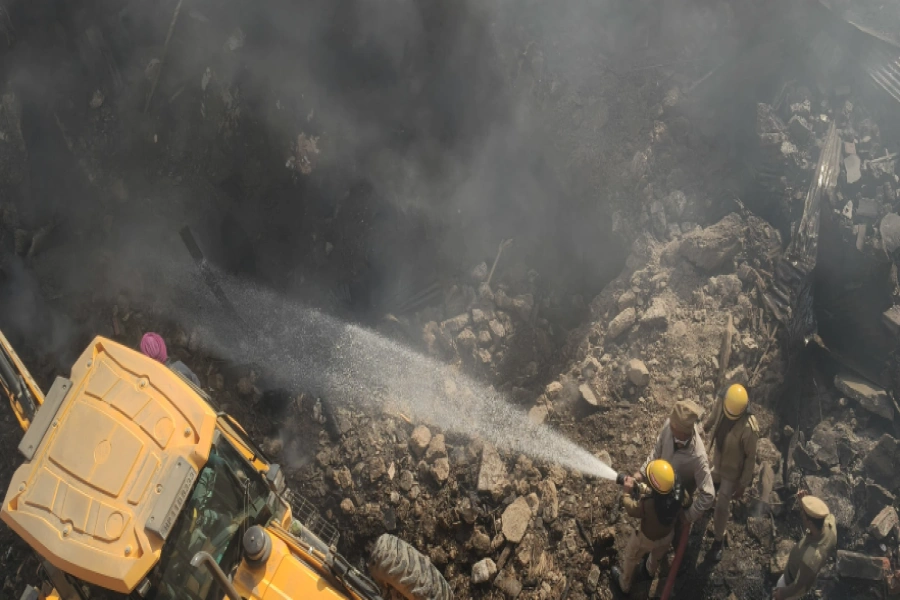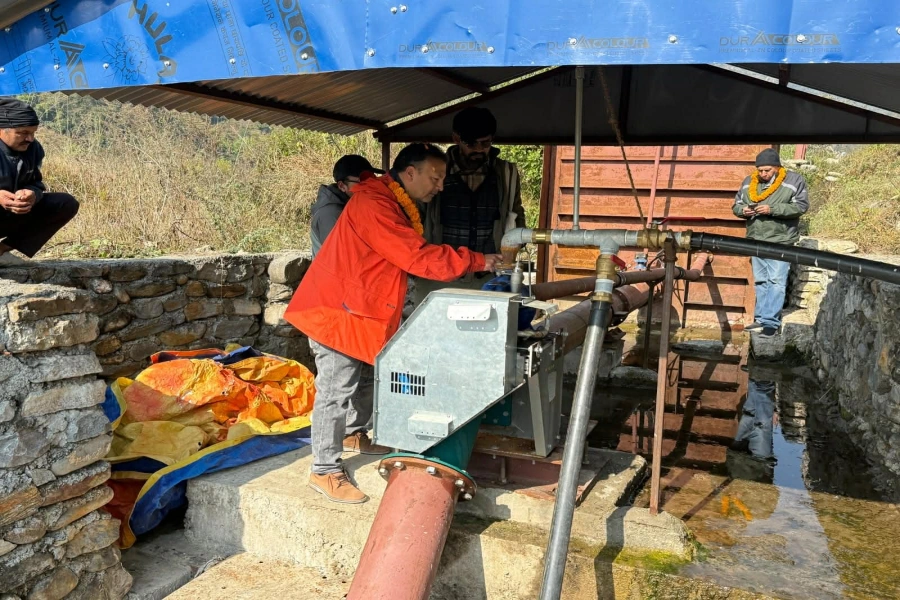Justice for Nirmala should not end with arresting the perpetrator(s). It should assure other vulnerable girls an environment to enjoy their childhood without fear
“Do you know that almost 600 rape cases have been reported in three months after the rape of Nirmala Panta?” My wife, after going through Nepali news, inquired early morning. “Yes, I read the news,” I responded. The good thing of having journalist friends on your social media network: You don’t really have to look for news anywhere since it is delivered on your personal feed. Everything is right there in the form of statuses and news reports. The pitfall: Sometimes the newsfeed gets so crowded with stories that you feel like you are in a newsroom struggling to prioritize and process the feed within a limited available time. Luckily, as a previous journalist, married to a previous journalist, we have two news processors in the household. It is highly unlikely that we miss an important update.
If you are not living under a rock, you must have known by now that Nirmala Panta, a 13years-old child, was raped and murdered four months back and the government is yet to find the perpetrators. It has raised question on the government’s ability to secure the lives of children and deliver justice.
The news of a rape and murder, followed by delayed justice, is sickening. A five-years old child is reportedly gang-raped just this week. What kind of society produces such monsters? Anger is the only emotion I experience reading such news. Anger needs to subside to write a meaningful logical sentence but it rarely does because the news keeps repeating with different places and different victims. When it is unsafe raising girls, especially for a family whose class or cast does not propel much social capital, what else can we expect from a society? If this is the rate, Nepal will soon be trailing India, one of the most dangerous countries in the world to be women, and that drives me nuts. Nirmala’s rape and murder is just the tip of the iceberg. The real problem lies in a society that in a way has normalized rape. Like gun violence and mass shooting in schools has been normalized in America, violence and rape has been normalized in Nepal.
Injustice from the womb
Selective abortion, illegal in both India and Nepal, though comparatively improving, is just the beginning. Those fetuses, lucky to outsmart the culture of selective abortion, fall into the structural trap of society that treats women as second-class citizens, as soon as they get born. Even today, in most households in Nepal, a girl does all the chores. A girl cooks, cleans, does laundry and dishes, and becomes the shadow of her mother without getting to be a child. A girl sacrifices her dreams of going to a better school for the sake of her brothers’ better education, a girl is denied a higher education because that means getting out of home and staying in cities and towns considered even dangerous for a lonely girl. By the time she grows to become a woman, she is trampled a million times by her very own—father, mother, brothers, uncles, aunts, grandparents, and the community she is a part of—that she does not speak a word when she is given away, sometimes against her will, by the same people who have no problem spending lavishly on a dowry that they could have used for her education. Such is the abusive state of womanhood in Nepal and it continues, generations after generations.
IGP Gyawaly blames coronavirus for delays in Nirmala case

Movement for justice
Rallies, pressuring government to deliver justice for Nirmala, are being organized throughout the country. But the movement for Justice for Nirmala should not end with arresting the perpetrator(s). It should also assure other vulnerable girls like Nirmala an environment to enjoy their childhood without fear.
It should make sure that government steps in when parents are unable or unwilling to provide the basic needs for children like Nirmala. It should also look into supporting struggling mothers and help them raise their children especially when their physiological needs are unmet. It should confront the society that puts all the value on a son, one reason that effectively stole Nirmala’s love and belonging needs that she should have received from all, including her father who ended up marrying another woman in the hope of a son.
It also needs to educate fathers that they are the ones responsible for the Y-chromosome required to deliver boys, not the mothers.
The absence of the government when Nirmala required protection because she was growing up in a dysfunctional world is worth noting. So is the absence of child protection services which provided a fertile ground for her rape and murder. The state has the obligation to provide safety and security for all, especially the minors. Every registered rape is a reminder that the government is failing to provide the basic security to its people. Any government that does not assure safety and security to its citizens has no right to tax its citizens. Nirmala represents thousands of girls whose lives still depend on the mercy of those who are sustaining the system that has failed to secure the lives of Nirmalas.
Policy for anger
Our generation probably confronted rape for the first time during the mass movement for Justice for Nirvaya of India. It was successful because it exerted enough pressure to nab the perpetrators of the heinous crime and provide some sense of closure to the family. But that did not really change anything. The culture of looking at women largely remains the same on both sides of the border. Hindi films (backed by Nepali films) continue to sell ‘macho’ men misconception to our society.
Masculinity in movies often means being rough, forcing girls against their will. It continuously sells this notion that girls might say ‘No’ but that does not necessarily mean ‘No.’ And their masculinity is challenged when they finally figure out that ‘No’ actually means ‘No.’ They resort to violence because this is how they have been raised—they can’t take ‘No’ for an answer.
Our society needs to start educating boys and that starts by recognizing the problem. We need to educate all boys, right at school, that every sexual intercourse starts with a consensus. They can’t just zip their pants off whenever and wherever they feel. It’s high time for us to discipline the macho men who commit crimes in our society.
Those sex offenders released from prison need to be monitored and educated. And the criminal mindset of men acting like wild mad wolves, while encountering vulnerable girls, has to be met with strong criminal laws. Both Nirvaya and Nirmala were the victims of that criminal mindset engrained in our society. For the girls to survive with dignity, our society must come up with an ironclad rule to deal with these types of criminals.
After justice for Nirvaya movement in India, justice for Nirmala is getting momentum in Nepal. It has effectively highlighted the dangers of being women in Nepal. Movement Nirmala in a way has punctured the patriarchal social order. Frustrated protesters are standing up with the banners that read “justice delayed is justice denied” and are spilling their anger on the streets of the capital. But nothing substantial is expected to come out of this outrage unless and until this frustration and anger is channeled into legislative action.
The leaders exporting luxury foreign cars probably can import few good foreign policies, if not all, for protecting children.
Every loss of life is painful. If it is resulting from rape and murder, it is a permanent trauma on survivors. We can’t bring Nirmala back. But we can save others from similar crimes. This is an opportunity for us to self reflect as a society and do our due diligence to stop these crimes from recurring. This is an opportunity for the government to listen to the concerns of citizens and introduce new laws to protect children.
A policy in itself is not going to change the society right away and undo the damage already done. But it is a step in the right direction. Expecting to cure all the social maladies discussed above, regarding safety and security of children, and resolving all those with a stroke of a pen is impossible. But the government needs to lay down the basic fabric of child protection to make sure that children are protected. Saving children has to be the priority. A government that fails to protect children can’t protect its future.
The author is Cofounder at Advocacy for Refugee and Immigrant Services for Empowerment (ARISE), a nonprofit organization based in Massachusetts
baral.mukesh@gmail.com



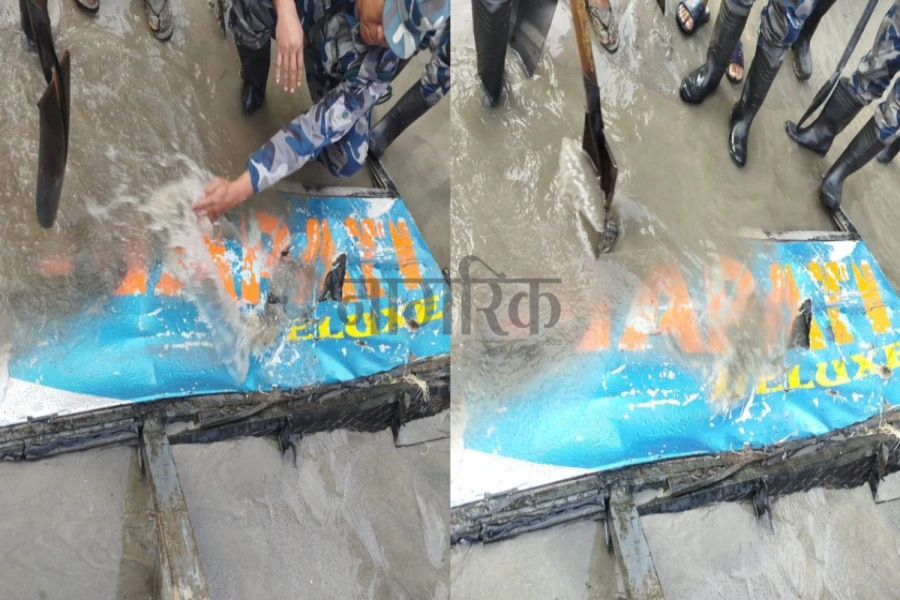


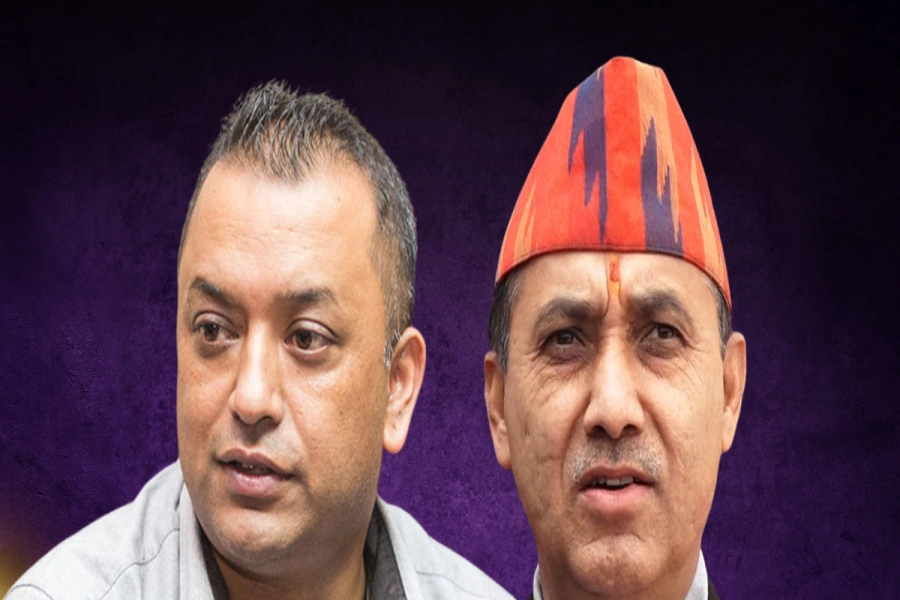

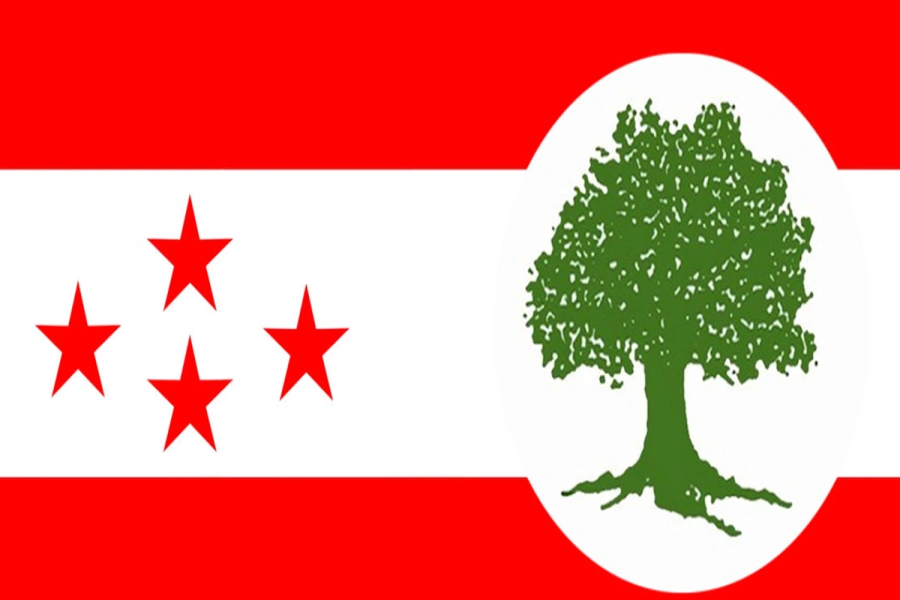


_20200211065424.jpg)





